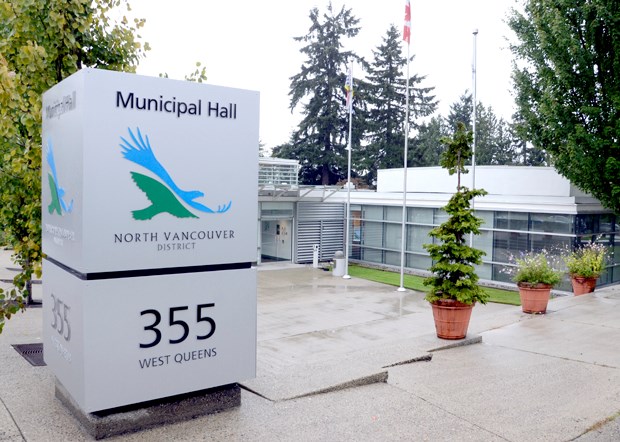The District of North Vancouver is giving its master plan a second look as the community goes through some growing pains.
Council passed a motion Monday night to conduct a high-level review of its official community plan starting in 2017.
The motion came from Coun. Lisa Muri who argued many of the laudable goals in the 2011 OCP were not coming to fruition. The plan emphasized protection of the environment, greater choice in housing options, jobs and improved public transportation. But, she said, since that time, traffic has worsened, property values have only gone up, industrial land has been lost to redevelopment and businesses have been displaced, all while the effects of construction have sapped quality of life for existing residents. A moratorium on new developments would give council time to assess the impacts of the hundreds of units already approved or under construction, she argued.
“It would be dishonest and disingenuous if we continue to allow consideration of (development) applications ahead of this review. It is not just about the built form. It is about all people from all different backgrounds from socioeconomic abilities that make this community rich and prosperous. We need to think outside the box. We need to slow down,” she said.
During council’s public input period, a string of community members, particularly those from the Edgemont and Upper Capilano area beseeched council to pass Muri’s motion.
Coun. Jim Hanson was sympathetic to the plea.
“If we’re just planning to build our way out of the issues of traffic, housing unaffordability and the scarcity of industrial employment lands, it’s not going to work. We need a new strategy,” he said.
Coun. Doug MacKay-Dunn too said the OCP would stand to benefit from some fresh study, especially as more census data starts being released in 2017.
“No plan ever survives implementation. Anybody who’s ever served in the military or a paramilitary organization knows this. You have to change the plan based on new information,” he said.
But, while council was largely receptive to a fresh look at the OCP, there was no consensus that there should be a moratorium on development.
The challenges experienced by the district are happening all over the Lower Mainland and to some extent, major cities around the world, Coun. Robin Hick countered. Stepping away from the OCP for the pleasure of people today would defeat the purpose of the forward-looking document, he added.
“It’s for the benefit of our children and our grandchildren – not necessarily the people who are living here now and I think the people living here now have to accept the fact that we’re going to have a lot more people coming here, a lot more challenges of affordability, but the work that we’re doing now is to accommodate those future people,” he said.
Coun. Mathew Bond, the only person from the post-baby boomer generation to be elected on the North Shore, also took issue with the implication.
“When I hear sentiment around the table that favours keeping things the same, for many, many young people, that means we have no opportunity to live in North Vancouver,” he said.
Part of the OCP’s purpose was to woo back the “missing generation” of young people who would work, start businesses and raise families. Cutting off the supply of new housing stock would send the message that millennials aren’t particularly missed, he said.
“It’s not just the generation that were lucky enough to buy their homes 20 or 30 years ago and are now sitting on a massive amount of wealth. It’s their children. It’s your children,” he said.
And if high housing costs are a problem now, just wait until the district experiments with restricting supply, Coun. Roger Bassam warned.
“We’re fighting against demand and market forces trying to create affordability and we’re suggesting, somehow, limiting supply might help that? That’s simply not going to work,” he said.
In the end, the vote to review the OCP passed with only Bassam opposed. The motion, however, did not amount to a freezing of development applications until the review is complete, much to Muri’s dismay. Council will hold a special meeting to set the parameters of the review, including whether to freeze development applications. Muri said she will also push council to revive its OCP implementation committee, which has been disbanded.
Muri attempted a similar moratorium in 2015 pending a state-of-the-district assessment about the pace of development.



